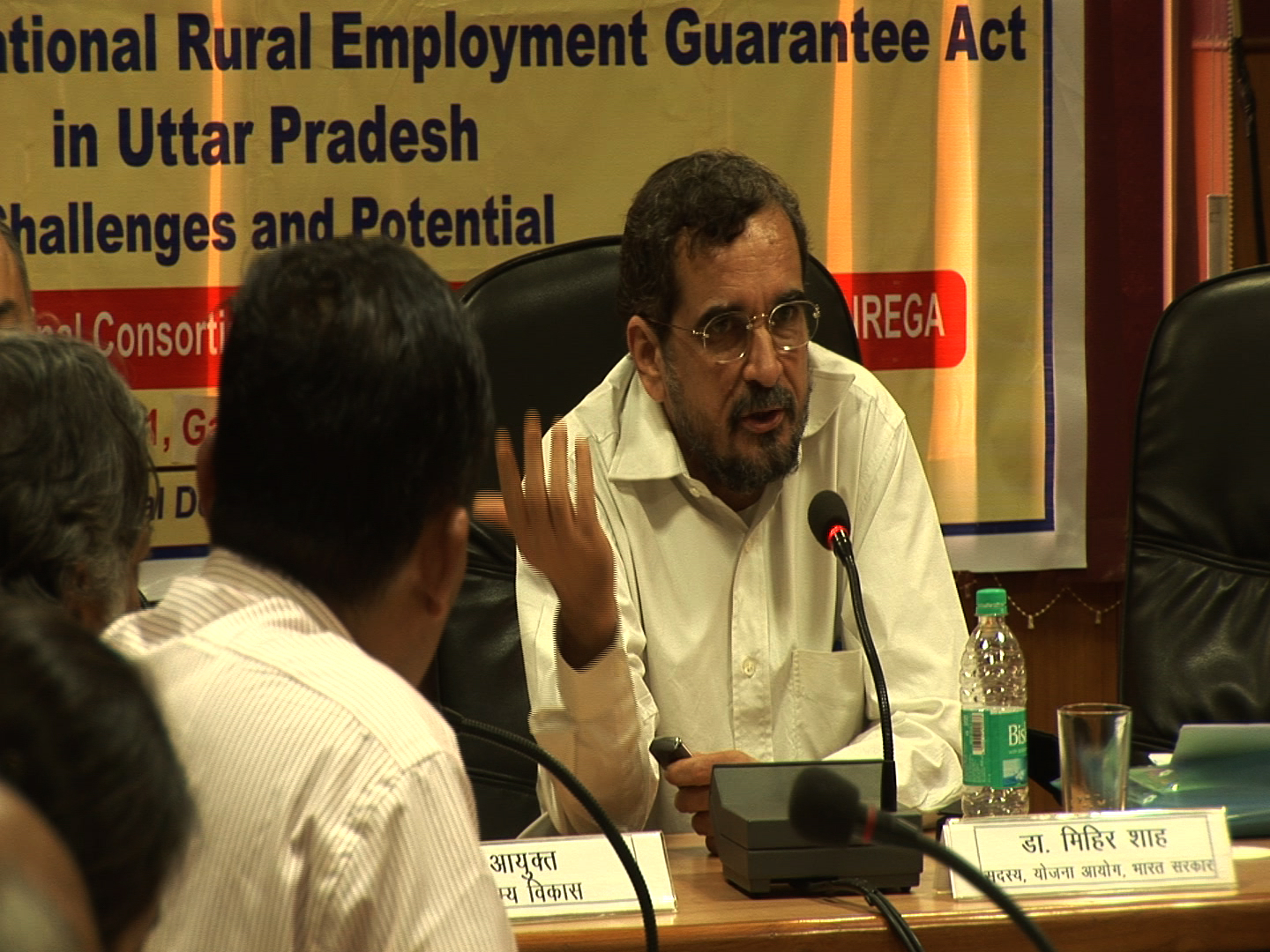 MGNREGA has started picking up steam in Uttar Pradesh in the last few years and the state has to take steps forward to tap the full potential of Independent India’s largest social sector initiative.
MGNREGA has started picking up steam in Uttar Pradesh in the last few years and the state has to take steps forward to tap the full potential of Independent India’s largest social sector initiative.
In this context, the National Consortium of Civil Society Organisations for MGNREGA organized a state-level consultation on MGNREGA in Uttar Pradesh between 8th and 9th of March 2011. The aim of the consultation was to bring together officials of the state and Central governments along with representatives of civil society in UP to discuss the potential and problems of the programme in the state and to arrive at a road map for MGNREGA reform in UP.
The consultation was spread over two days. On the 8th, CSO partners of the consortium in Uttar Pradesh got together at an in-house reflection session at the Institute of Co-operative and Corporate Management, Research and Training, Lucknow, and shared their experiences on MGNREGA. The discussions were rich and geared towards giving shape to a positive agenda for MGNREGA reform in the state, which could be put forward to the state government on the subsequent day.
The consultation was held at the Ganna Sansthan Conference room. Dr Mihir Shah, Member, Planning Commission, Government of India, presided over the proceedings. Government of UP was represented by Mr. Sanjiv Kumar, Commissioner, and Mr Anurag Yadav, Additional Commissioner of the state Rural Development Department.
Partner CSOs of the National Consortium from Eastern UP and Bundelkhand made presentations detailing their work and the learning’s there from during the forenoon session, which was followed by observations and responses from Dr Shah and Dr Yadav. The presentations focussed on bringing out the challenges facing MGNREGA implementation in Poorvanchal and Bundelkhand regions of the state, and the experiences of consortium partners in finding solutions for the same.
Inaugural Address
In his inaugural address, Dr Shah set the tone for the consultation by stating that the country as well as the state was still away from the revolutionary promise that MGNREGA held and drew attention to the yawning gap between outlays and outcomes.
“With MGNREGA, gram panchayats are the fulcrum for all development activities. Neither the state nor the district nor the block can overrule the aspirations of the village. They can only suggest revisions. What bigger revolutionary concept of development can you expect?” he asked.
He said that MGNREGA had played a huge role in resuscitating the local governance structure. Up until now, functions had been transferred to panchayats but not resources. Now MGNREGA has addressed that too, he said.
Pointing out those reforms should not be limited to the corporate sector and should be extended to rural India; Dr Shah said that the approach paper for the 12th Five Year Plan would focus on an innovation fund.
He pointed out that one of the key factors inhibiting MGNREGA outcomes is the Additional Charge Syndrome, where officials are burdened with additional responsibilities of MGNREGA even when they struggle to deliver on their core functions. Given that MGNREGA requires tremendous and focussed application, “the additional charge syndrome should be done away by having a fully dedicated staff for implementing and monitoring the MGNREGA scheme,” he said. He emphasised capacity building of officials, panchayats and the wage seekers and pointed out that about 6% of the massive Rs 40,000 crore earmarked per year for the scheme is available for this purpose. However, the national average for this in terms of actual utilization is just around 3%. “UP had also so far performed not too well on this count,” he said.
Yet, Dr Shah said he felt that the mood in UP was changing. “I can see increasing participation of people in MGNREGA and openness to reforms on the part of the government,” he told media persons adding that there was an urgent need to address key issues like up keeping of work records, job card records, muster rolls, wage mechanism, unequal wages, non-operational bank accounts and widening community participation at every level.
/articles/challenges-potential-and-way-forward-update-nrega-consortium